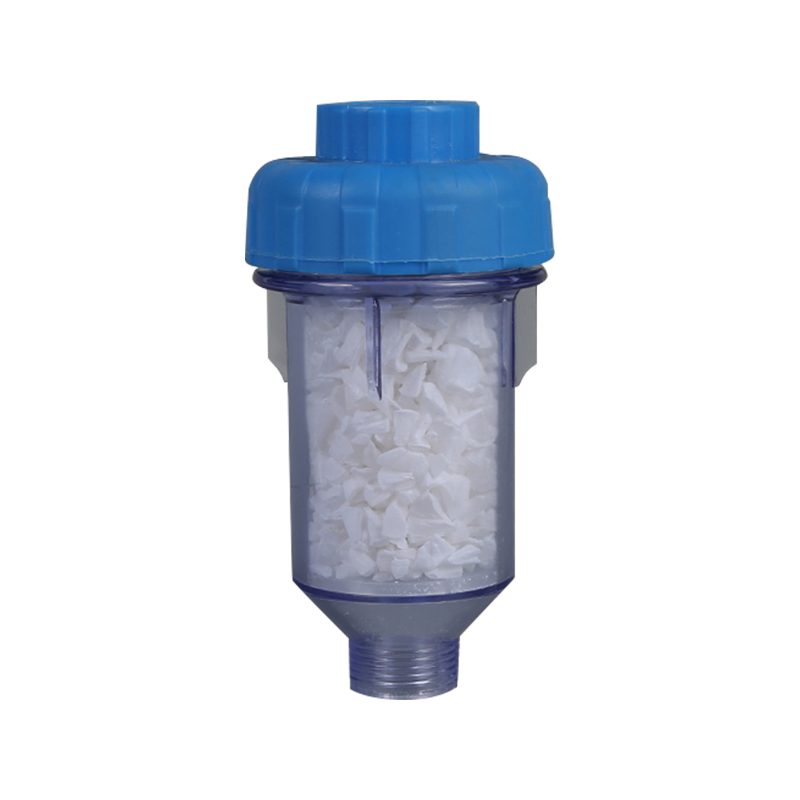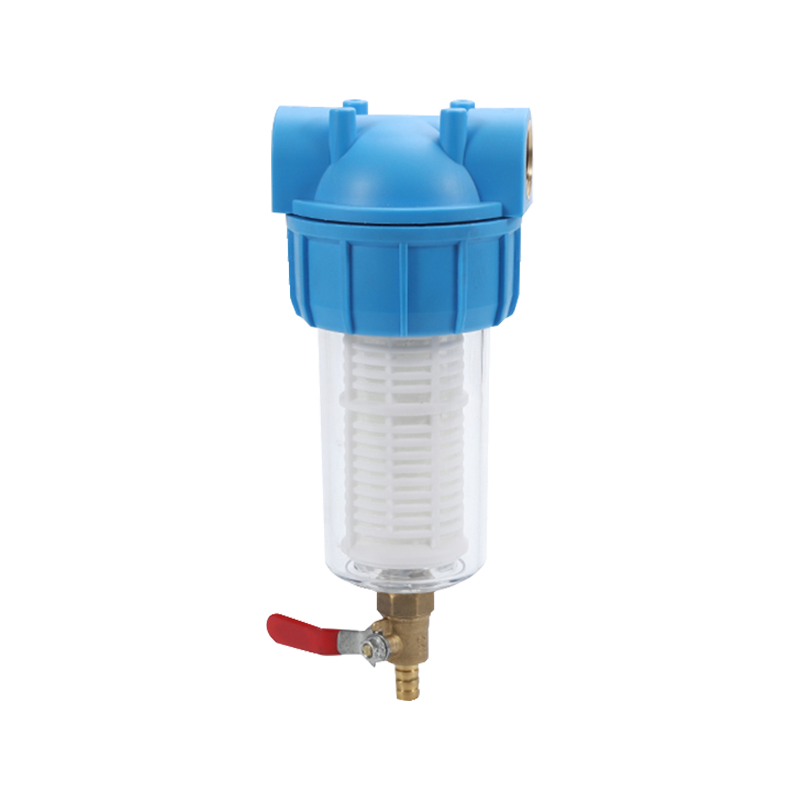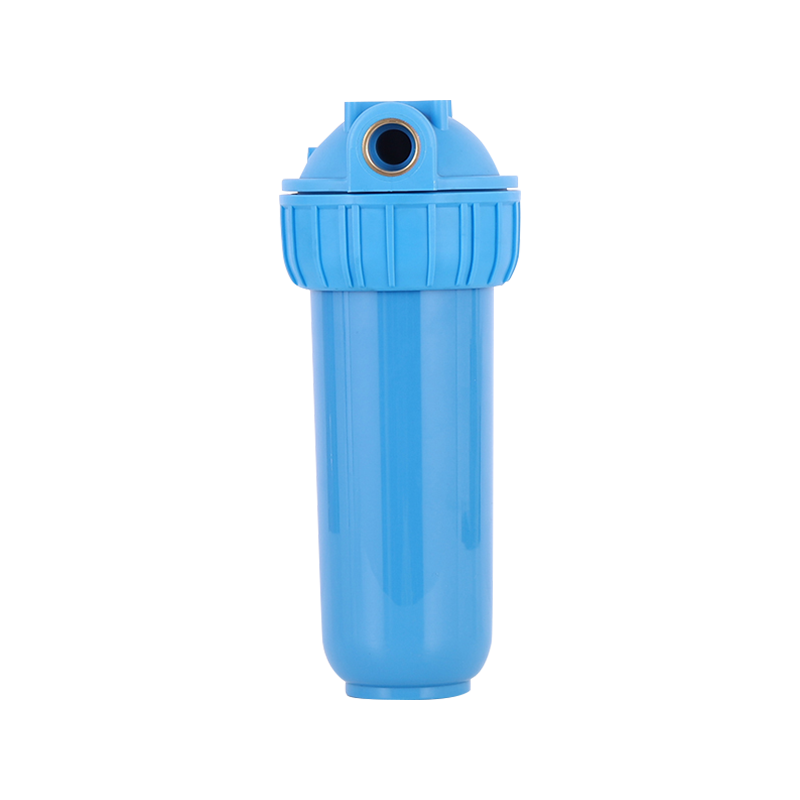The core highlight of this filter is its built-in silicone sheet filter layer. As a high-performance elastic material, silicone has high-temperature resistance, aging resistance, corrosion resistance,...
See Details [email protected]
[email protected] +86-18857088392
+86-18857088392 No. 1, Guihua 'an Road, Qinggang Xiaohu Family, Mushan Town, Yuyao , Zhejiang, CHINA
No. 1, Guihua 'an Road, Qinggang Xiaohu Family, Mushan Town, Yuyao , Zhejiang, CHINA
Water quality is no longer a problem: How to protect your family's health with a home water filter
Industry News-Introduction
Water is essential to human survival, and we rely on it every day to sustain life. With the accelerated urbanization and increasing environmental pollution, the quality of our tap water is facing more and more challenges. While water treatment plants make efforts to purify the water, contamination can still occur during transportation and storage. Tap water may contain a variety of pollutants, including heavy metals, bacteria, and chemicals. To ensure the health of your family, installing a home water filter has become a necessary choice for more and more households.
Common Hazards in Water Pollution
Harmful Chemicals
Common harmful chemicals in water include chlorine, chloramine, pesticide residues, and volatile organic compounds (VOCs). These substances are typically added during the water treatment process, but drinking water containing them for long periods can pose potential health risks. For example, high concentrations of chlorine can irritate the respiratory system and cause discomfort to the skin and eyes, while some VOCs (such as benzene and trichloromethane) are considered carcinogenic.
Bacteria and Viruses
Bacteria and viruses are among the most common biological contaminants in water. Common waterborne bacteria include E. coli, Salmonella, and others. Although water treatment plants disinfect water, secondary contamination can still occur during distribution, especially in aging pipes. In older plumbing systems, water quality is harder to guarantee.
Heavy Metal Contamination
Heavy metal contamination in water is another significant concern, particularly lead, copper, and arsenic. If these metals enter the human body, they can accumulate in organs like the liver and bloodstream, leading to long-term health risks. Heavy metal contamination is especially dangerous for children, pregnant women, and the elderly.
Hard Water
Hard water is water that contains high levels of calcium and magnesium. Over time, hard water can cause scale build-up in pipes and household appliances, such as water heaters and washing machines. It can also affect the digestive system and the skin’s health.

How Do Home Water Filters Work?
Filtration Technologies
Home water filters use various filtration technologies to effectively remove pollutants from water. Common filtration methods include:
- Activated Carbon Filtration: Activated carbon adsorbs chlorine, organic substances, and volatile chemicals, improving the taste and odor of the water.
- Reverse Osmosis: Reverse osmosis technology uses a semi-permeable membrane to remove dissolved solids (such as salts, heavy metals, and bacteria), making it one of the most effective water treatment technologies.
- UV Sterilization: UV light effectively kills bacteria and viruses in the water, ensuring the water is hygienically safe.
Multi-Stage Filtration
Some high-end home water filters use multi-stage filtration systems that combine activated carbon, reverse osmosis, and UV sterilization technologies. This design ensures that water is purified from various pollutants, offering superior water quality.
Smart Features
Modern home water filters come with additional smart features. Equipped with sensors, these filters can monitor the water quality in real time and alert users when it’s time to change the filter or perform maintenance. Some models even support app-based remote monitoring, allowing users to check water quality anytime, anywhere.
Health Benefits of Home Water Filters
Removal of Harmful Substances
The primary advantage of home water filters is their ability to remove harmful substances from water, such as chemicals, heavy metals, bacteria, and viruses. By filtering these contaminants, a water filter ensures that your family consumes clean and safe water.
Boosting Immunity
Drinking purified water regularly reduces the risk of exposure to harmful substances, thereby enhancing your immune system. For example, removing bacteria and viruses from the water reduces the likelihood of gastrointestinal diseases and skin problems, helping to strengthen your body’s defenses.
Improved Taste of Water
Filtered water is free from chlorine and other chemicals, giving it a fresh and pleasant taste. Many people base their decision to drink water on its taste, and a water filter significantly improves the flavor, making it more enjoyable to drink.
Protecting Skin Health
Filtered water is not only suitable for drinking but also for bathing and washing. Long-term exposure to untreated water can lead to skin dryness, irritation, and allergies. By using filtered water, you reduce the contact your skin has with minerals and chemicals in hard water, promoting healthier, smoother skin.
How to Choose the Right Home Water Filter?
Choose Based on Water Quality
When selecting a home water filter, it is important to understand the quality of your household’s water. You can either obtain a water quality report from your local water utility or conduct a water test yourself. Once you understand the types and levels of contaminants in your water, you can select a filter that best addresses these issues. For example, if your water has high chlorine levels, an activated carbon filter may be suitable. If heavy metals are a concern, a reverse osmosis system would be more appropriate.
Capacity and Filtration Speed
Home water filters come in different models with varying capacities and filtration speeds. Some models are designed for larger households, while others are suitable for smaller families. Choosing a filter with a higher capacity and faster filtration speed can ensure that your family’s needs are met without delays.
Consider Your Budget
Home water filters vary greatly in price, ranging from affordable options to high-end models. When choosing, you should consider not only the price but also the performance, filter life, and maintenance costs of the product. While high-end products generally offer better filtration and durability, there are also many mid-range products that provide good value for money.
Maintenance and Care of Your Home Water Filter
Regular Filter Replacement
The filter is a crucial part of any water filtration system, as it adsorbs and removes harmful substances from the water. To maintain optimal performance, it is necessary to replace the filter periodically. The frequency of replacement typically depends on the product and usage, but it is generally recommended to change the filter every 6 to 12 months.
Cleaning and Disinfecting
Home water filters should be cleaned and disinfected regularly to prevent bacteria growth and maintain proper functioning. Use specialized cleaning agents to clean the internal components of the filter, such as the water pipes and storage tank.
Check Water Quality
Regular water quality checks are important, especially after changing filters, to ensure that the filter is still performing well. Some advanced models come with water quality monitoring systems that alert you when maintenance is required.

 English
English русский
русский Español
Español عربى
عربى 中文简体
中文简体
 >
> >
> >
> >
> >
> >
> >
> >
>
